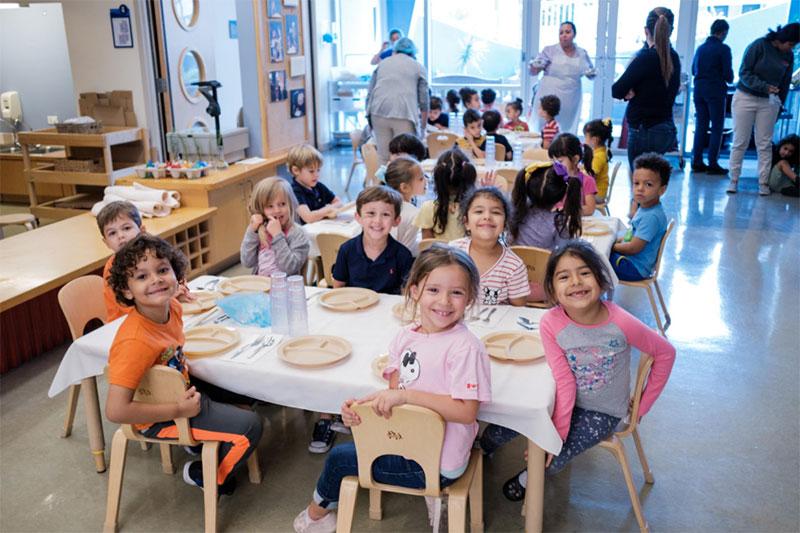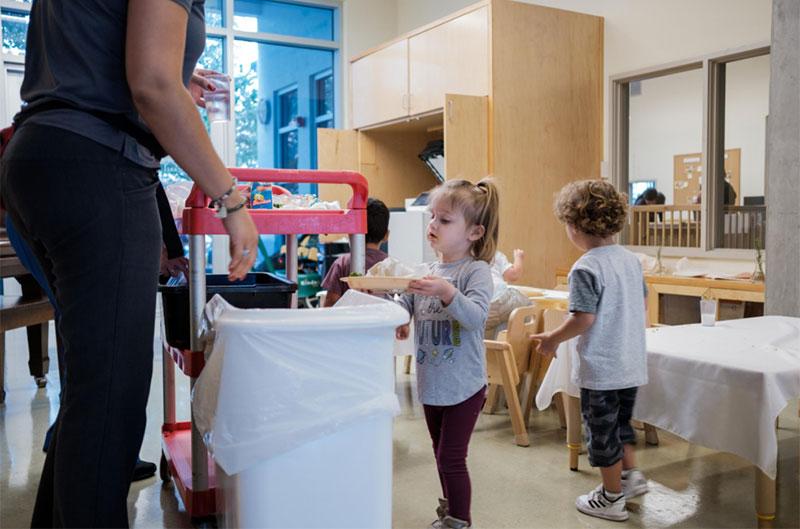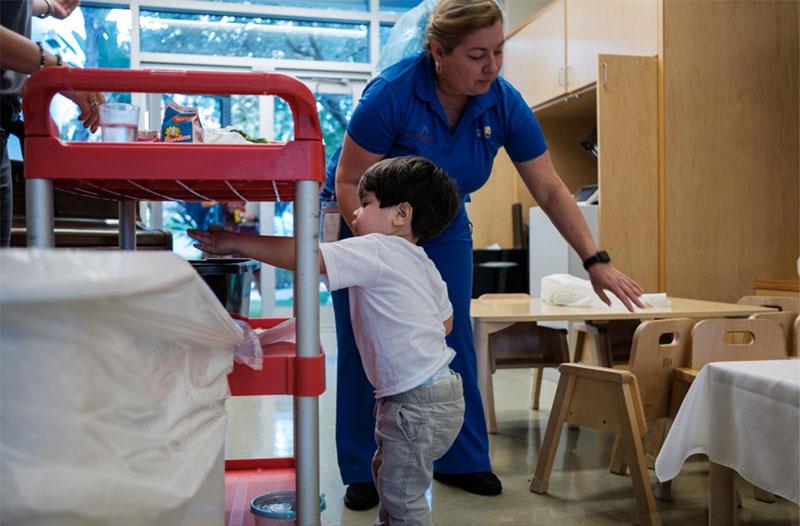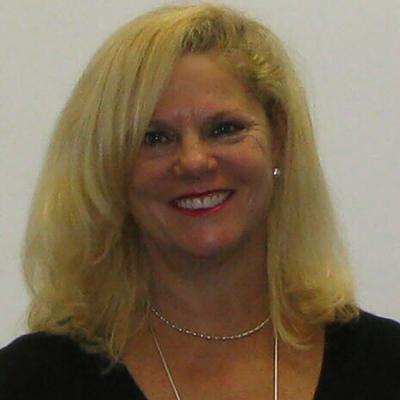Recognize the signs of Autism
Our expert this week is Kathy Carroll, Manager for the Broward County Early Steps Program. Early Steps serves infants and toddlers with developmental delays and handicapping conditions. Kathy shares suggestions for early intervention to help if your child is showing signs of autism.
At a Glance
- In 2018, the Center for Disease Control (CDC) determined that approximately 1 in 59 children are diagnosed with an Autism Spectrum Disorder (ASD).
- Boys are four times more likely to be diagnosed with autism than girls.
- Most children are still being diagnosed after age 4, though autism can be reliably diagnosed as early as prior to age two.
- Autism affects all ethnic and socioeconomic groups.
- Minority groups tend to be diagnosed later and less often.
- Early intervention affords the best opportunity to support healthy development and deliver benefits across the lifespan.
Autism, or Autism Spectrum Disorder (ASD), refers to a broad range of conditions characterized by challenges with social skills, repetitive behaviors, speech and nonverbal communication. Indicators of autism usually appear by age 2 or 3. Some associated development delays can appear even earlier, and often, it can be diagnosed as early as 18 months. Research shows that early intervention leads to positive outcomes later in life for people with autism.

Knowing the Signs for Autism
Social Communication and Interaction Skills Delay
As a speech language pathologist, I know that often the earliest sign of ASD is a delay in social communication and interaction skills. Social communication is comprised of skills that we need to interact and engage with other people. Young children communicate with facial expressions, gestures and sounds before they use words.
Early gestures may include:
- giving,
- pointing,
- reaching,
- waving, and
- blowing kisses within the context of social interactions.
Opportunities for these early interactions typically occur during routines throughout the day with parents and other caregivers.
Typically developing children want to “notice” the things you notice. They want to share in your excitement and have you share in their excitement. During games and activities such as peek-a-boo or bubbles, children learn the beginning of turn taking and a back-and-forth “serve and volley” for communication. They learn to anticipate and to request for more or to do it again. They share their emotions through facial expression and sounds. During this time of development, they begin to accompany their gestures with sounds, word approximations and, eventually, words to help get their meaning across.
For example, they may point and say “ba” for ball indicating they want the ball, they like the ball, they want you to get the ball or they want you to kick the ball, etc. Caregivers then interpret the meaning of the gestures and vocalizations, reinforcing the label for objects or actions. Through these interactions, the fundamentals of communication and social skills are acquired, setting the stage for ongoing learning and development.

Repetitive and Restricted Behaviors
In addition to impairments in social communication and social interaction skills, children with ASD often present with “Repetitive and Restricted Behaviors.”
These behaviors may include:
- making unusual movements with hands or fingers;
- lining up of objects such as cars or trains;
- spinning of or fixating on small parts of objects such as wheels on a car;
- opening and closing of doors, cabinets, or drawers without being able to interrupt the behaviors;
- over- or under-reactions to various sounds;
- an intense attraction to objects that cannot be redirected, etc.
These behaviors often impact a child’s ability to interact with people and things in their environment thus becoming what is often referred to as maladaptive behaviors.
As these skills are critical for successful communication and interaction with people and things in their environment, weaknesses or deficits with these developmental domains should not be ignored. The early identification of the red flags may help to find children at risk for ASD and in need of further evaluation.

Red Flags for ASD
Impairments in Social Interaction and Social Communication
- Lack of appropriate eye gaze.
- Does not respond to caregiver smiles or joyful expressions.
- Lack of gestures such as showing, giving, pointing, clapping, nodding head.
- Lack of sharing interest or enjoyment.
- Prefers to play alone in their “own world.”
- Limited imitation or pretend skills.
- Unusual prosody (little variation rhythm, unusual voice quality in pitch, odd intonation.
- Stereotyped language, such as repeating what others say or lines from character in a movie.
- Does not consistently respond to name; May appear not to hear you.
- Delayed speech and language including babbling.
- Stop using words that they used to say. May repeat words verbatim, but not understand how to use them.
Repetitive Behaviors and Restricted Interests
- Insistence on sameness, inflexible adherence to routines.
- Difficulty transitioning between activities.
- Repetitive movements and mannerisms with fingers and hands, peculiar body posturing, rocking, hand / arm flapping, body spinning, toe walking.
- Heightened visual inspection of parts of toys, peripheral or upward eye gaze.
- Fixated interests or attachment to objects such as colors, shapes, letters, numbers.
- Unusual interest in parts of objects that interferes with play such spinning wheels on cars, trains.
- Heightened or lack of sensitivity to noise, touch, vision, smell and/or taste.
- Difficulty regulating emotions.
- Easily frustrated when asked to participate in non-preferred activities.
Early Intervention is Essential
Research has shown that early intervention can improve a child’s overall development. Early intervention is essential to the success of young children with Autism. The first five years of a child’s life are critical. Interactions with caregivers develop neural connections in the brain. As we comfort, feed, talk to, read to and play with children, we help them develop these connections, which lay the foundation for all learning. Children with Autism who receive appropriate services and support at key developmental stages are more likely to gain essential social skills and react better in society.
How Parents and Caregivers Can Foster Social Communication and Interaction Skills
Infants and Toddlers learn by exploring their environment and participating in activities with parents and early caregivers around them. Everyday activities and routines such as play, mealtime, bath time, story time, bedtime, errands, and family trips are great opportunities to engage with young children.
Strategies to encourage growth and learning for young children with Autism
- Use words to describe what your child is doing.
- Follow your child’s lead. Reflect upon what they say. Reflect upon what they do.
- Keep activities fun and use enthusiasm.
- Avoid asking too many questions and/or directing play as much as possible.
- Model the appropriate gestures, words or actions.
- Keep your language simple and direct.
- Give clear directions. Tell your child what you want them to do, not what you don’t want them to do; “Gentle hands” vs. “Stop pulling the dog’s tail.”
- Keep directions developmentally appropriate.
- Praise your child when he/she demonstrates an appropriate behavior. Use specific praise. “I like how you ask for crackers!”
- Use tone and inflection in your voice to draw attention to the most important words.
- Provide opportunities for your child to respond even if they are not yet ready to respond.
- Model the appropriate gestures, words or actions.
- Engage in games, finger plays and simple songs that encourage back-and-forth turn-taking, or opportunities to request more.
- Pair your gestures with words and actions. Assign words/meaning to your child’s gestures.
- Position yourself in front of your child so they can see and “read” your facial expressions and emotions.
Play activities to do with your child that increase social communicative skills
- Bubbles – Improves social interactions, teaches anticipation excitement and allows for children to request for more, shared interest and attention.
- Reading – Builds positives routines, teaches early literacy skills needed for ongoing learning, builds positive social relationships, recognizing and naming of common objects.
- Balls – Promotes turn-taking, joint attention, anticipatory excitement.
- Coloring – Builds fine motor and imitation skills, early developing concepts such as colors, shape, sizes.
- Finger play / Nursery Rhymes – Increases joint attention, fine motor skills, imitation skills, pre literacy, predictability and anticipation, helps facilitate use of gestures and sounds.
- Outdoor play – Following simple directions, searching and describing things in environment.
What to do if you’re concerned?
Speak to your pediatrician about your concerns and ask for your child to receive an Autism Screener. Contact your local Early Steps Program, Florida’s Part C Early Intervention Program for Infants and Toddlers.
References:
- https://www.autismspeaks.org American Psychiatric Association. (2013). Diagnostic and statistical manual of mental disorders (5th ed.). Arlington, VA: Author.
- Wetherby, Amy M. (2020). Autism Navigator for Early Intervention Providers. Retrieved from https://autismnavigator.com
About the Author

Kathy Carroll, M.S., CCC/SLP, has been a Manager for the Broward County Early Steps Program at Children’s Diagnostic & Treatment Center (CDTC) since 2007. Early Steps serves over 7,000 infants and toddlers annually with developmental delays and handicapping conditions. Prior to coming to CDTC, Kathy worked at Broward Children’s Center as the Director of Developmental Programming and the Director of Therapy. Kathy was born and raised in Cheshire, Connecticut. She graduated with a Bachelors of Science Degree in Recreational Therapy from Ithaca College in Ithaca, New York and a Master of Science in Communication Disorders from Southern Connecticut State University. In addition to her love for working with young children and their families, Kathy enjoys yoga, gardening, cooking and spending time with her husband and their two dogs.